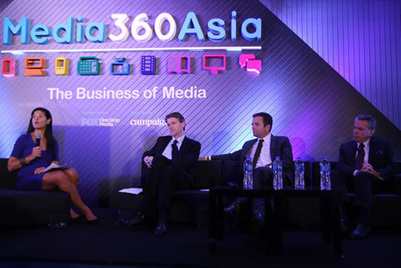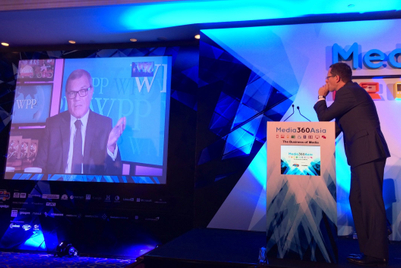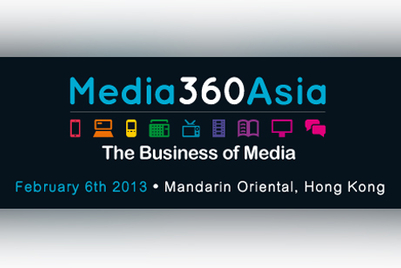
These are often described as the most exciting times to work in media. There’s no question that the business has fundamentally changed, and the evolution that has seen media agencies move from a transactional role to earning and cementing a position at the top table, setting the agenda of the future, is a positive one. But these are also uncertain times, and despite the enthusiasm for the increasingly pervasive role they play, agencies are facing innumerable challenges.
The digitisation of content and media is a massive disruption to the business, the crushing force of procurement on pressurised clients continues to be felt, and while some progress has been made, the issue of finding and retaining the right talent, and the need to transform existing workforces, continues to hang heavily over agencies. With the media world becoming increasingly complex to navigate and the traditional media model in decline, the existing rules no longer apply.
Against this backdrop, Campaign Asia-Pacific launched its Media360Asia summit to provide a day of thought-provoking sessions on the business of media in Asia. The invitation-only event in Hong Kong brought together 250 media leaders from across the globe to thrash out the issues facing the industry today, and to illuminate the best path forward in this complex environment.
|
Campaign Asia-Pacific's complete in-depth recap of Media360Asia:
Reactions? Please comment below or tweet @CampaignAsia. |
The need to adapt
The mood was pragmatic, edging into optimistic—buoyed no doubt by recognition of the industry’s ability to adapt. Mike Cooper, global CEO of PHD, admitted that a few years back he had feared for the future of the industry as the threats of disintermediation loomed large. But as media agencies positioned themselves to understand data and technology, their role has become far more ubiquitous than was thought possible, he said.
However, it’s clear that if agencies are to maintain relevance, this transformation will not conclude any time soon. In particular, the need to move from a service role to operating as partners that help clients navigate the increasingly muddy waters was a key theme at the conference. As Irwin Gotlieb, GroupM chairman, said: “We have to aggressively put ourselves where we think the puck is going to be and move in that direction, advising clients on what they need to do [to ensure] we deliver a competitive advantage in the future.”
This will create both opportunities and tensions, notably the need to find common ground on contentious issues such as procurement—an undercurrent throughout the event.
Sir Martin Sorrell, CEO of WPP Group, said marketing has lost ground to finance and procurement, and this balance must be restored. But the issue shows no sign of abating. Prashant Agarwal, regional marketing director, APAC and Japan at Dell, pointed out that, whether we like it or not, marketing budgets will continue to be constrained. “We have to live with it,” he said.
As such, it looks likely that a new mutual understanding of the role procurement plays will have to be found. Rob Norman, chief digital officer of GroupM, urged agencies to find a “safe place” to discuss procure-ment in a non-adversarial way. “I do worry that a culture of over-pricing and under-delivery as a response to pressure is something that is a spiral of doom that will take us all into a very bad place,” he warned.
Mounting concern over disintermediation was another key discussion point. Sorrell spoke of continuing competition from ‘frenemies’ such as Google, Twitter and Facebook, as well as consulting businesses and big data players, and urged the industry to find new revenue streams, new approaches, and new ways of engaging with clients and media owners, both of the legacy kind and the new type. “Because unless we do, we will be increasingly disintermediated and threatened,” he said.
A new era for agencies
Likewise, media agencies need to get a proper handle on data. In particular, Sorrell said a new broader and deeper definition of creativity will be needed, suggesting the big ideas in the media world are now technologically driven, and spurred by a better understanding of data. “A big thing we really find uncomfortable about our industry is that it is not the day of Mad Men anymore; it’s the day more and more of Maths Men,” he said. “It’s art and science, it’s creativity and data. It’s bringing all of those things together in a more effective way.”
Laura Desmond, global CEO of Starcom Media-Vest Group, urged agencies to get their act together around data. She said in general the industry had been “awful at data”, relying on third-parties rather than proprietary seminal work. “Our goal is not to repeat or reproduce what’s been done the past 10 to 15 years because that’s just working hard to stay in place,” she said. “Our goal is to figure out how to we measure the change in consumer behaviour across screens… how does behaviour change by marketing in the cloud, by integrating the social, the interest, the entertainment, the news graphs? Those are big questions and different questions that getting the data infrastructure right will help us answer.”
The article first appeared on Campaign Asia


.jpg&h=334&w=500&q=100&v=20250320&c=1)
.jpg&h=334&w=500&q=100&v=20250320&c=1)



.jpg&h=334&w=500&q=100&v=20250320&c=1)
.jpg&h=334&w=500&q=100&v=20250320&c=1)


.jpg&h=334&w=500&q=100&v=20250320&c=1)




.jpg&h=268&w=401&q=100&v=20250320&c=1)

.jpg&h=268&w=401&q=100&v=20250320&c=1)

